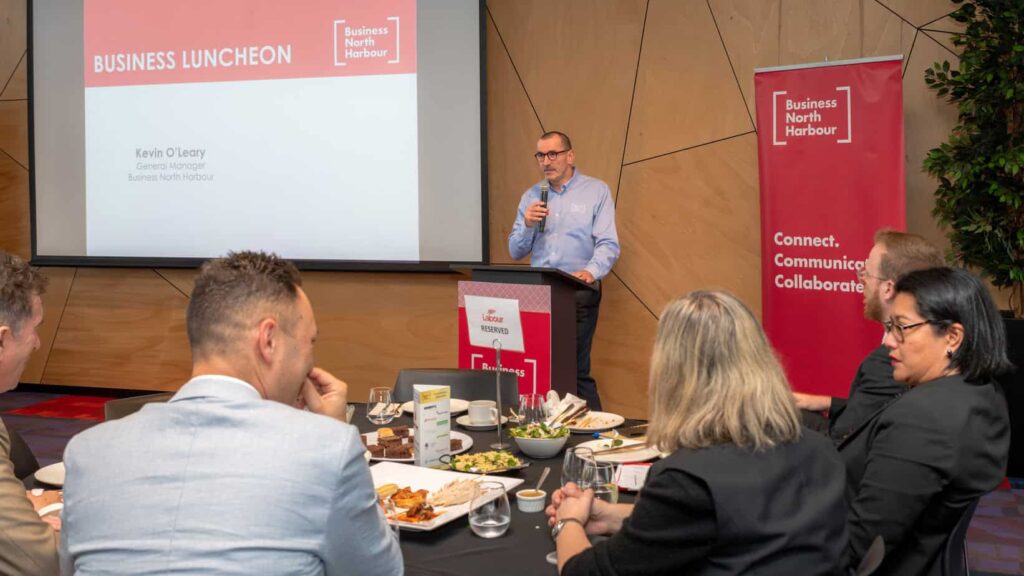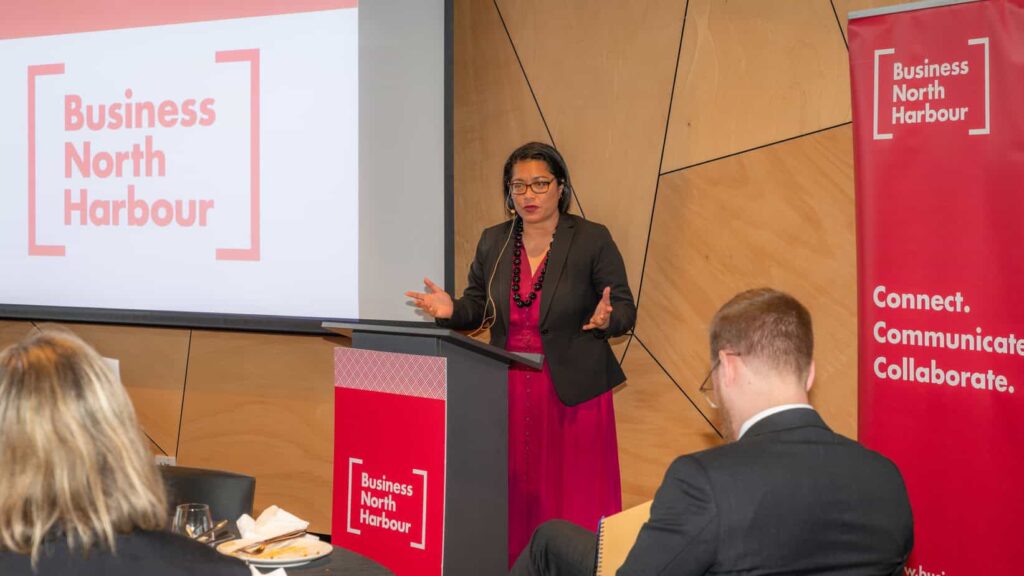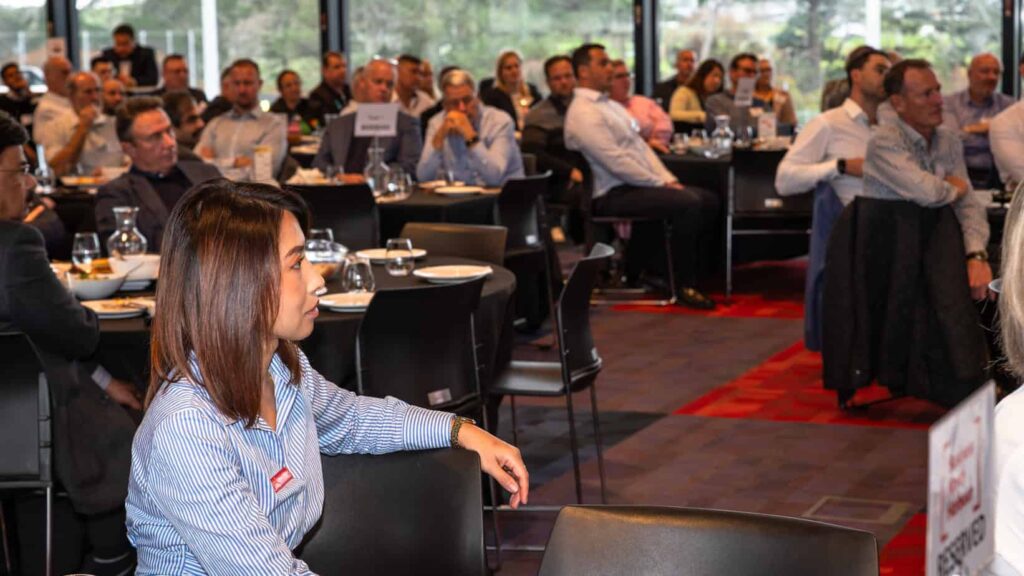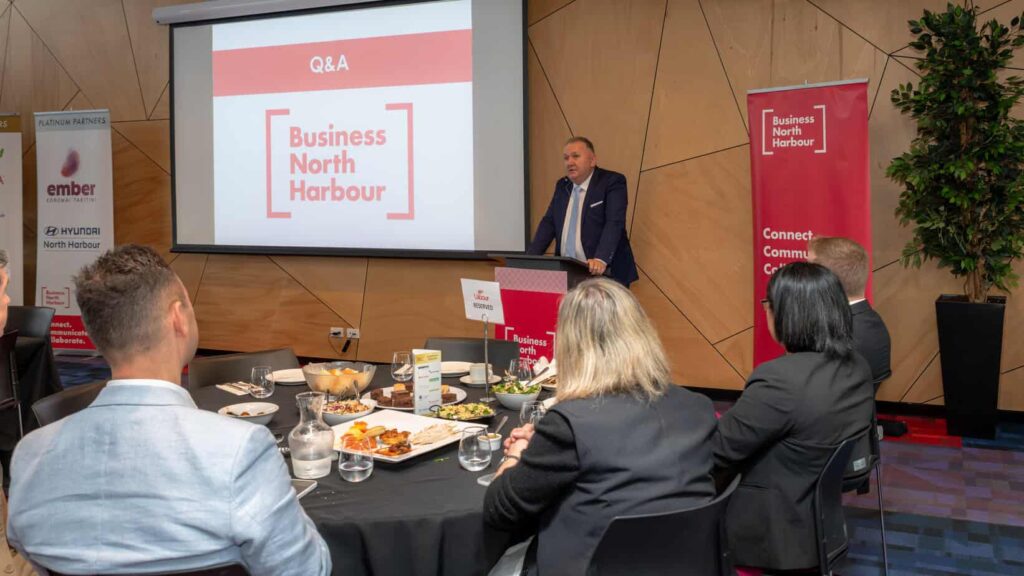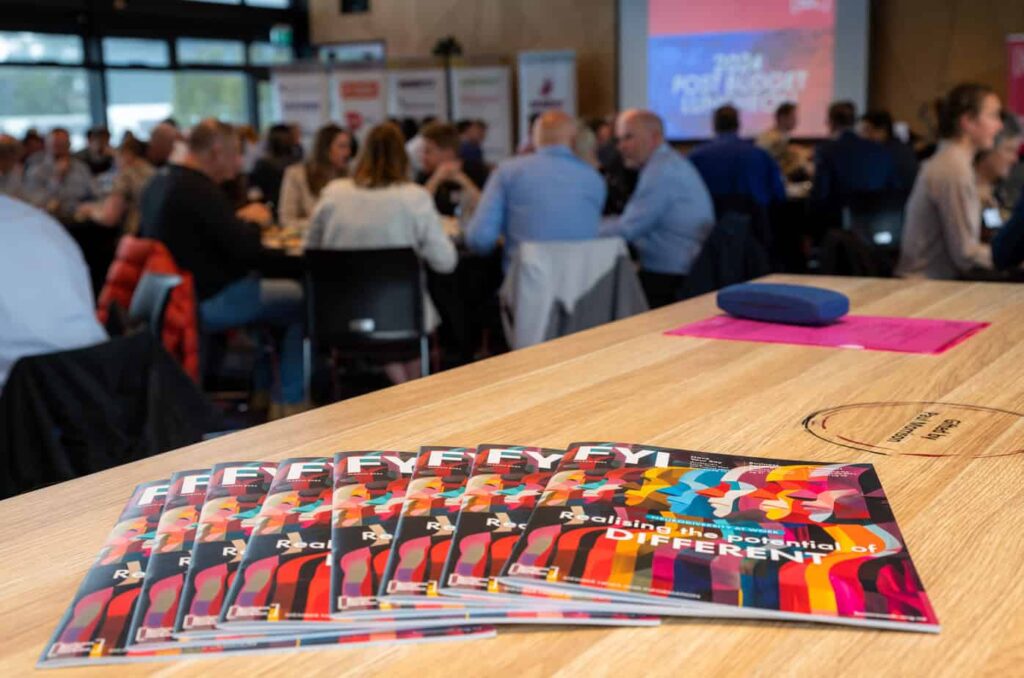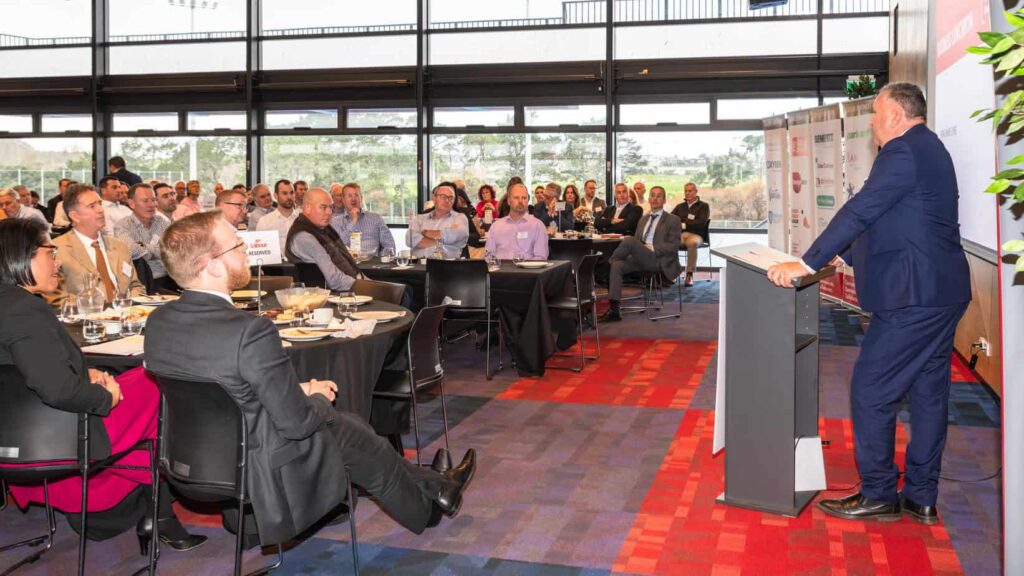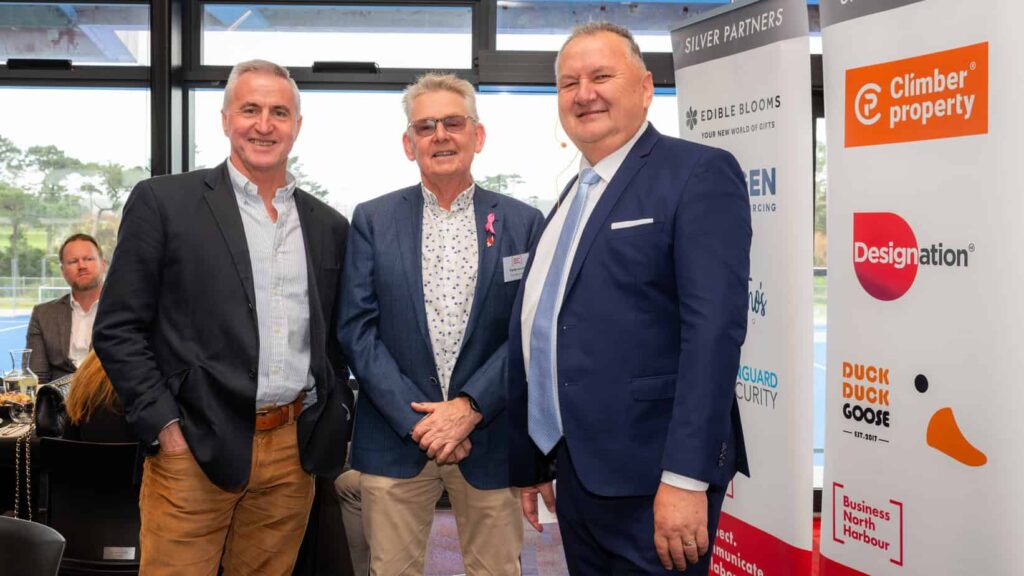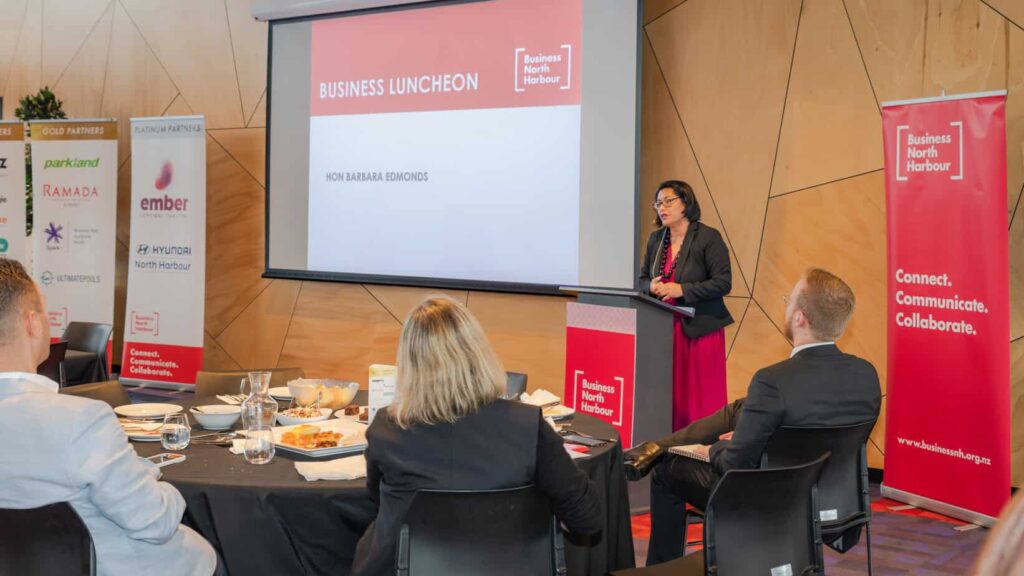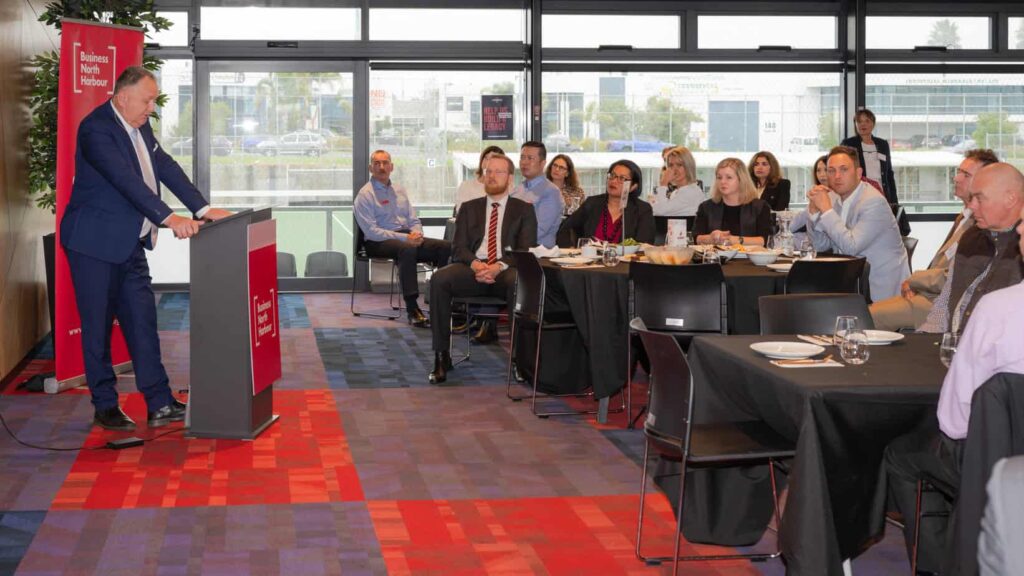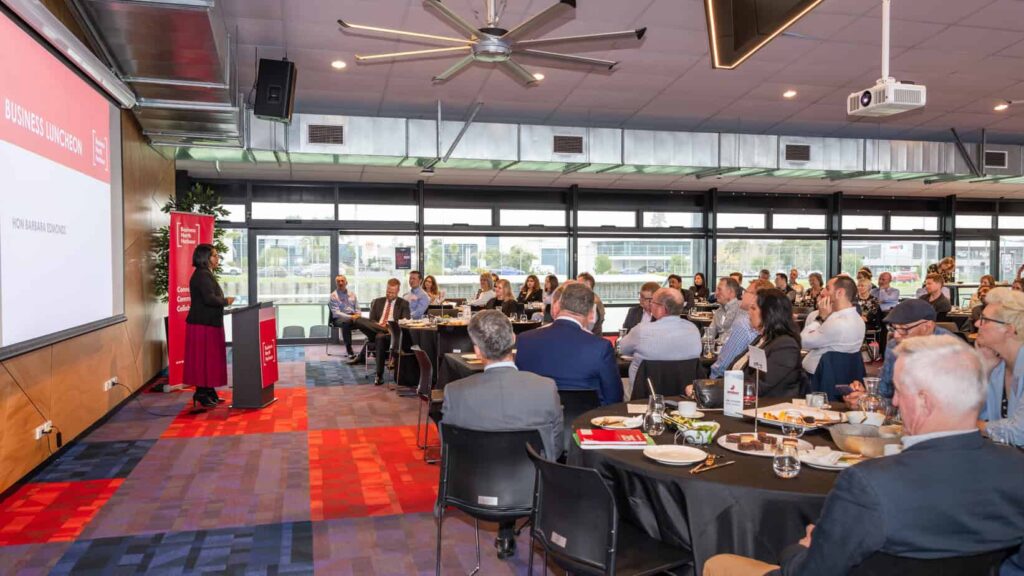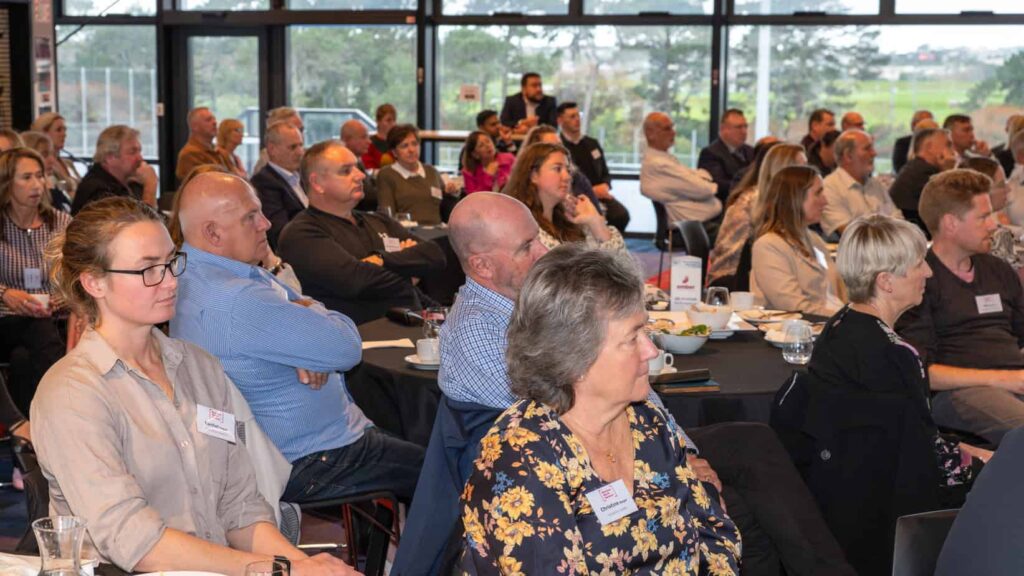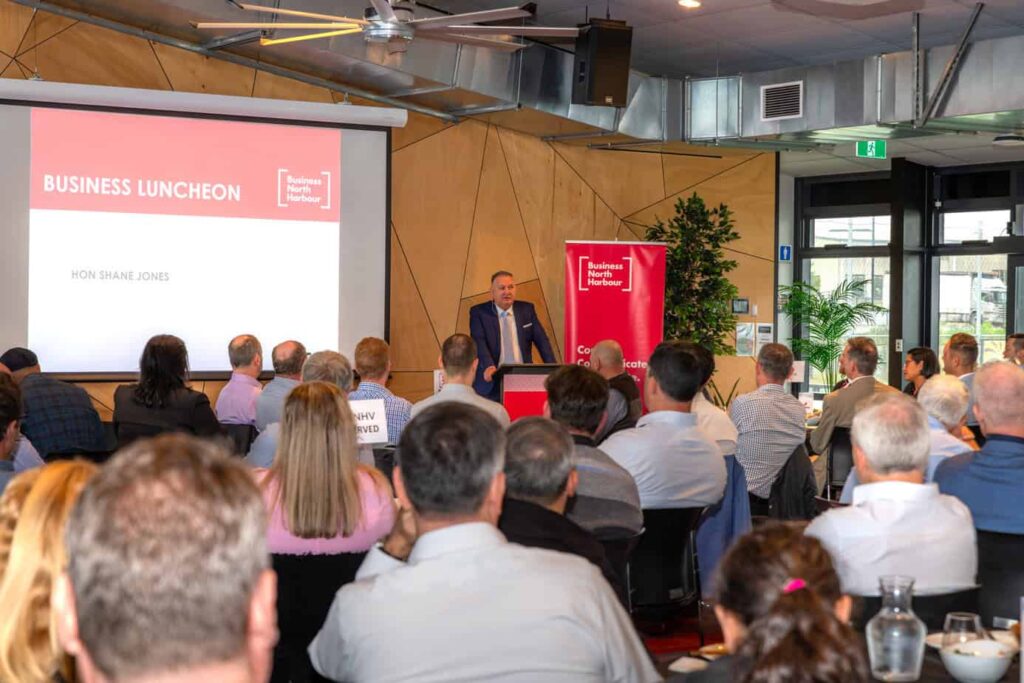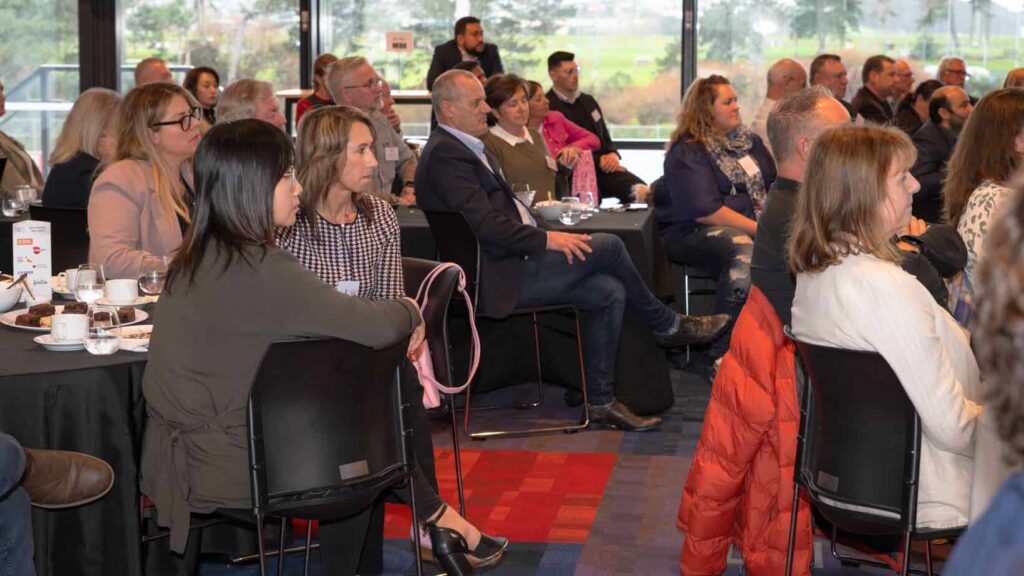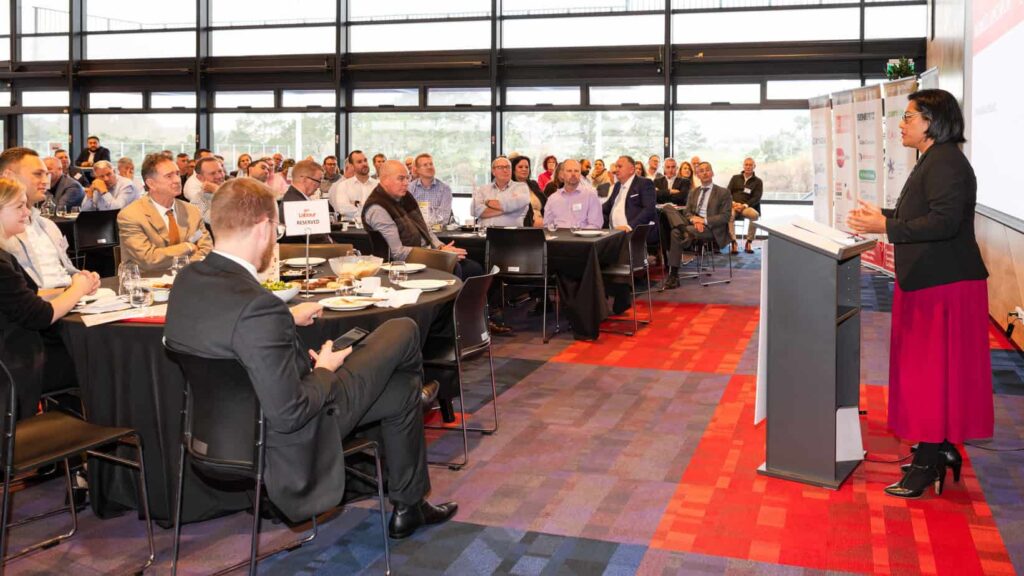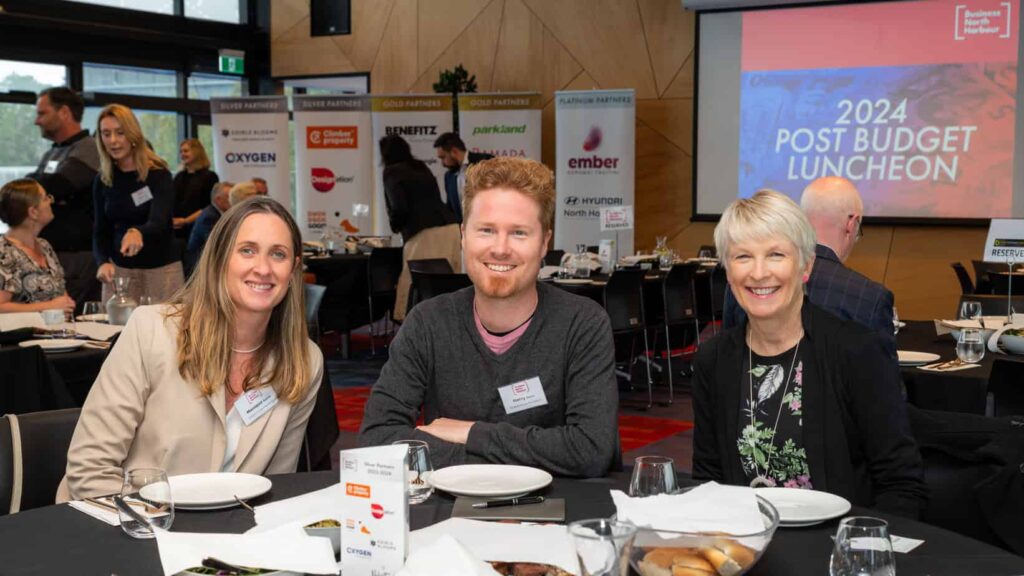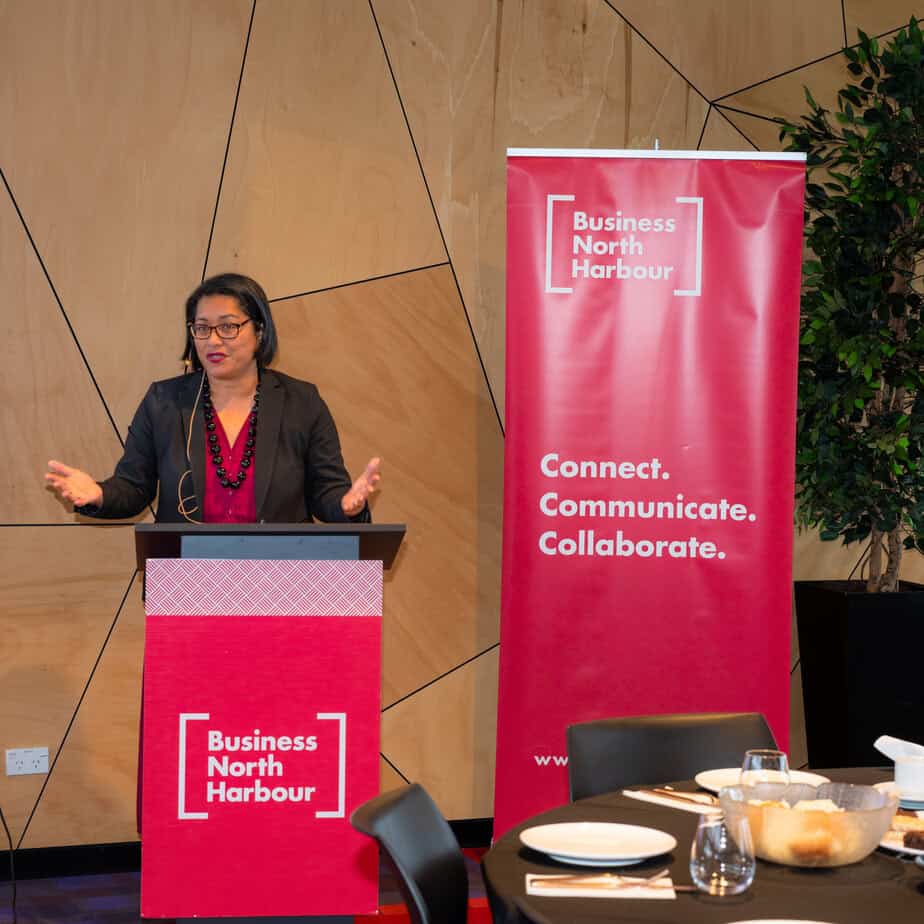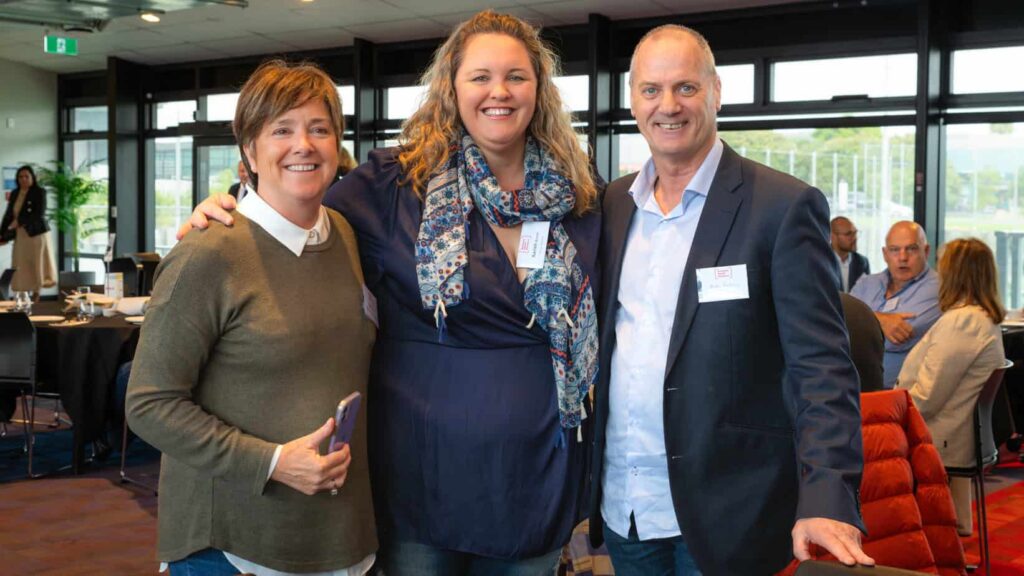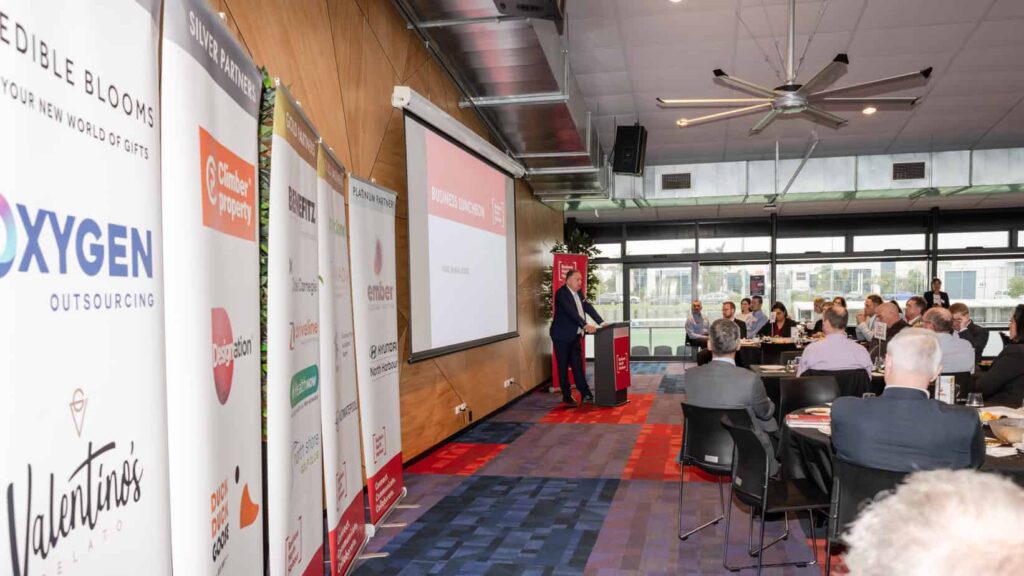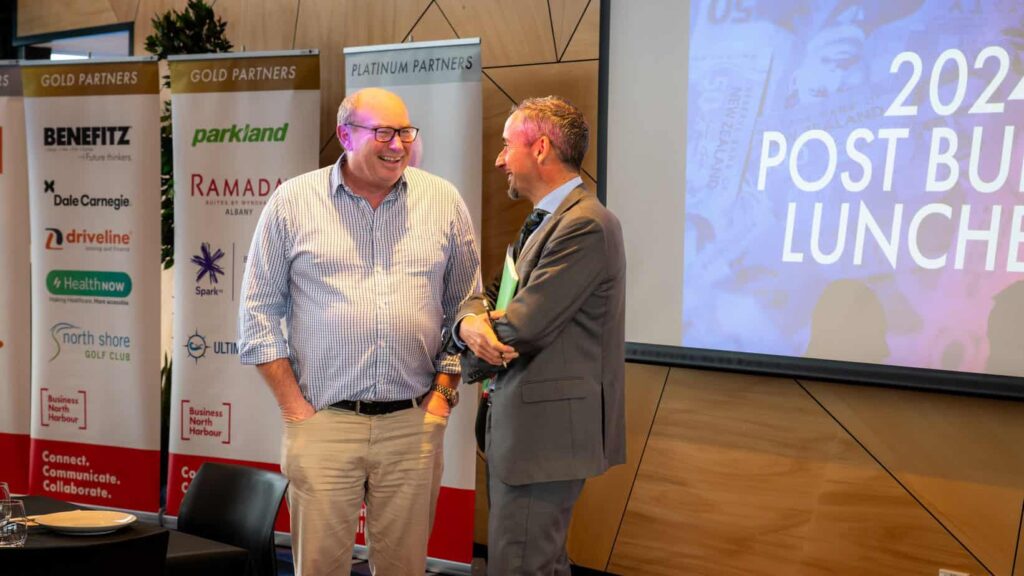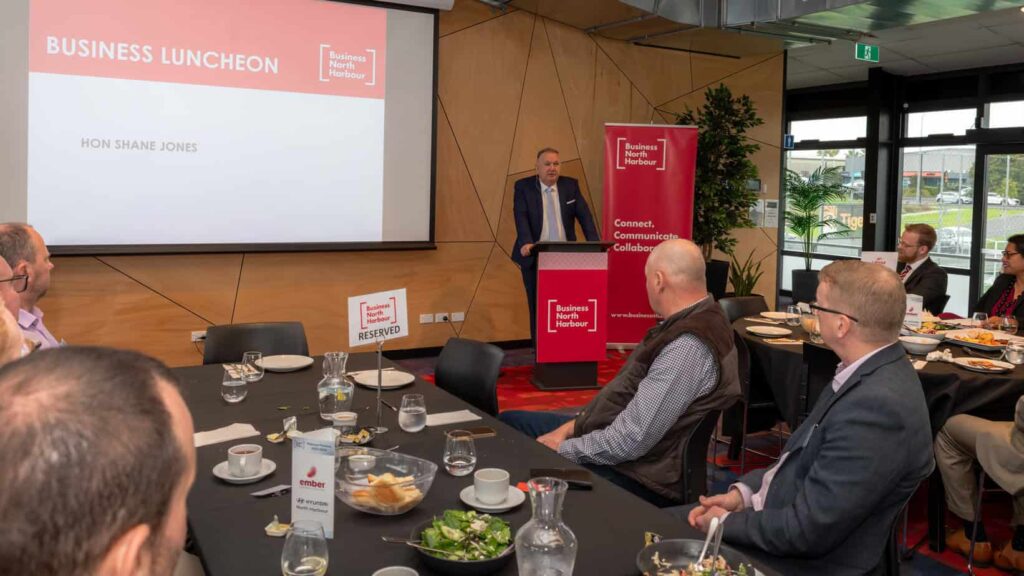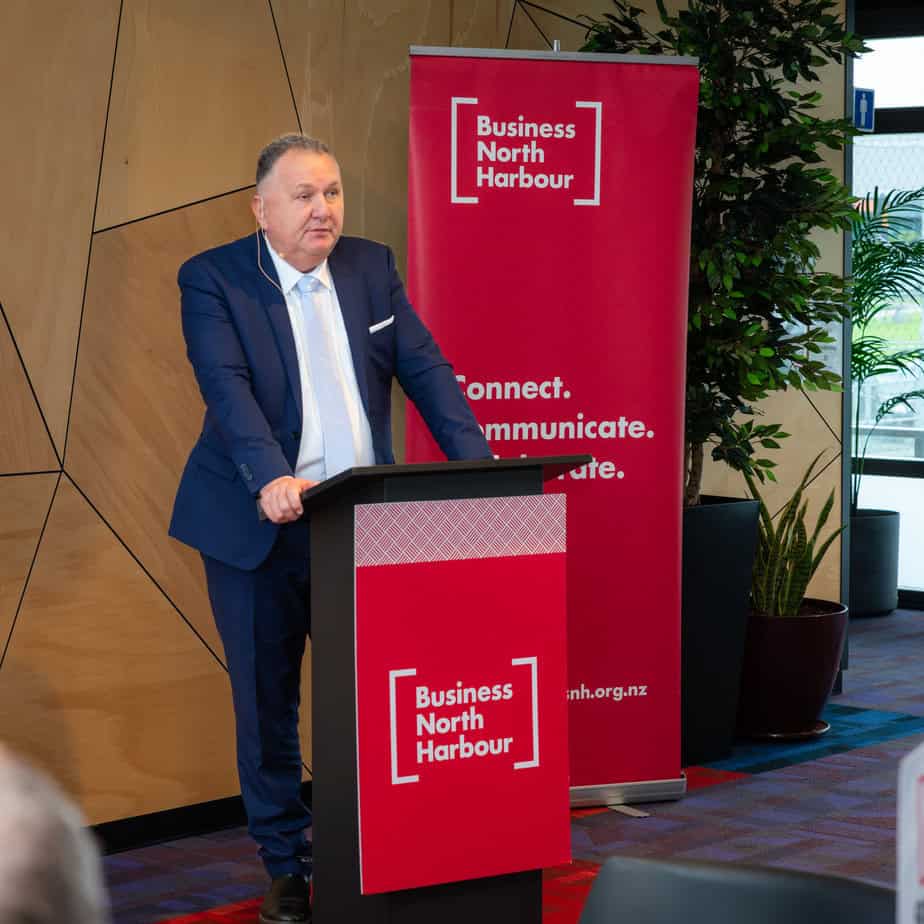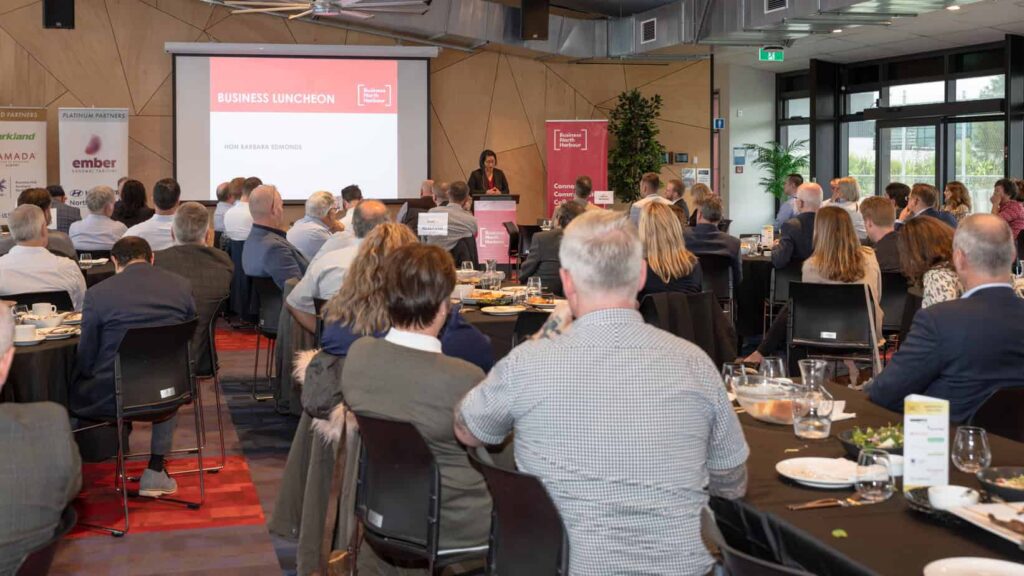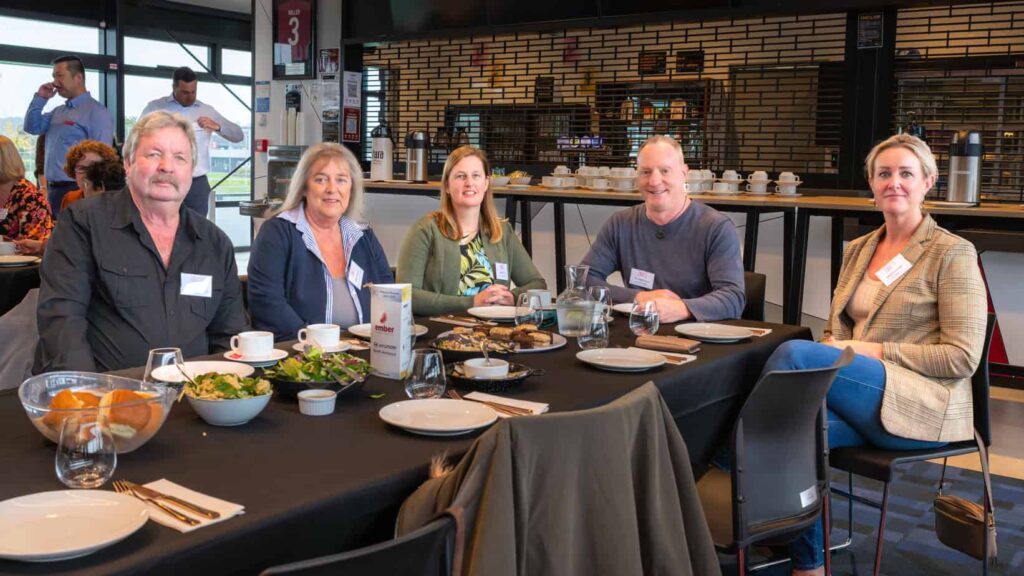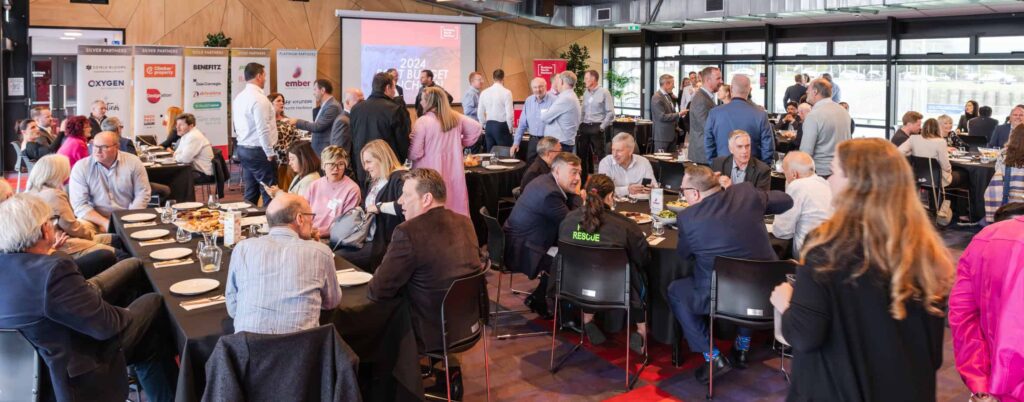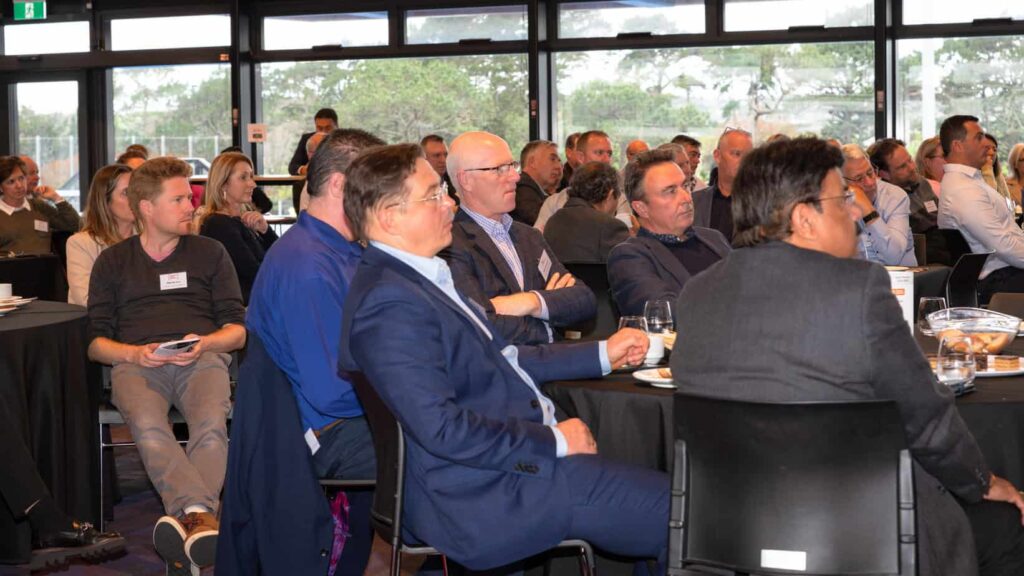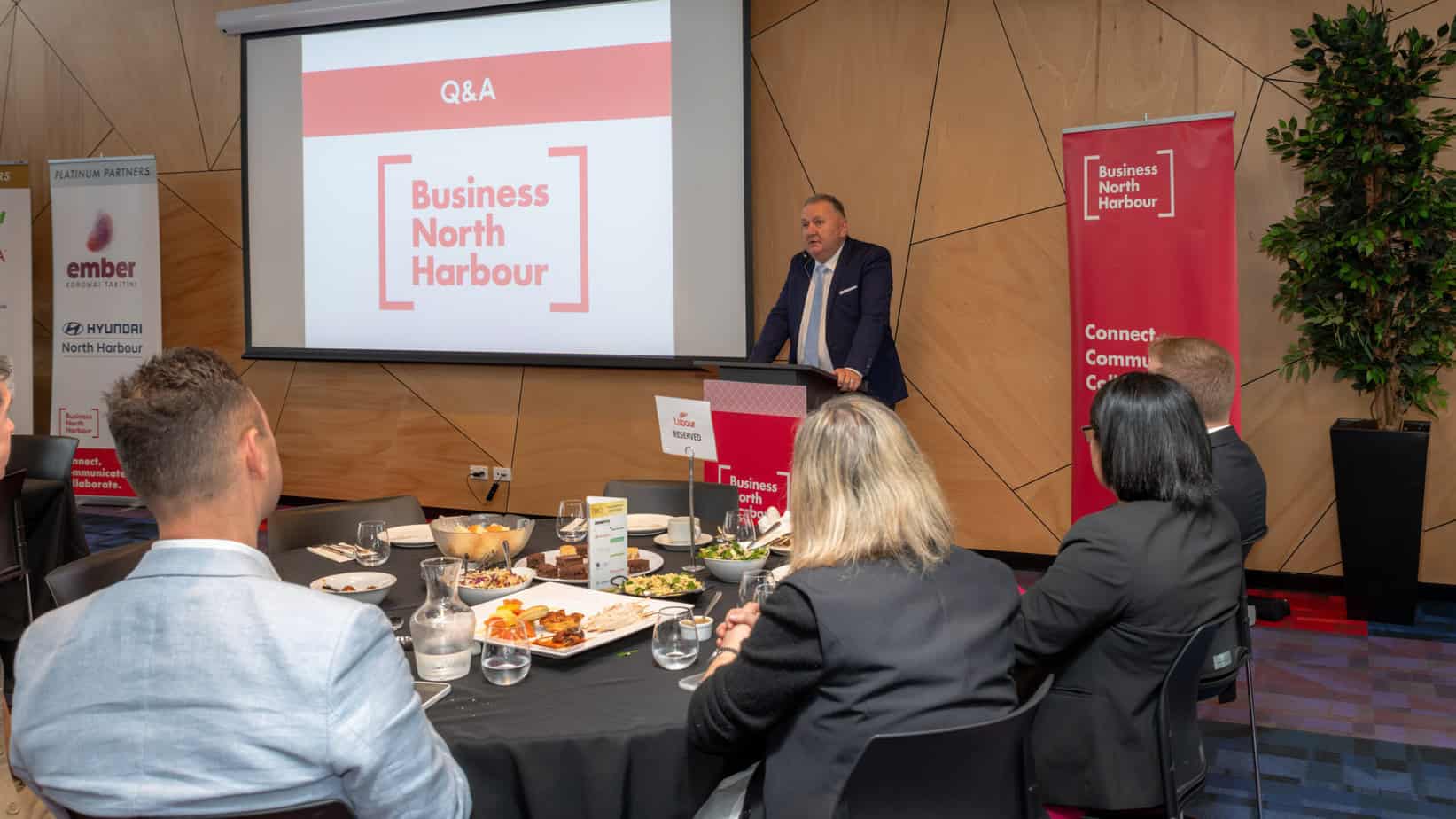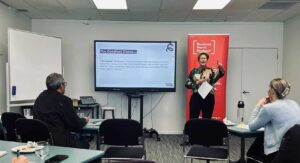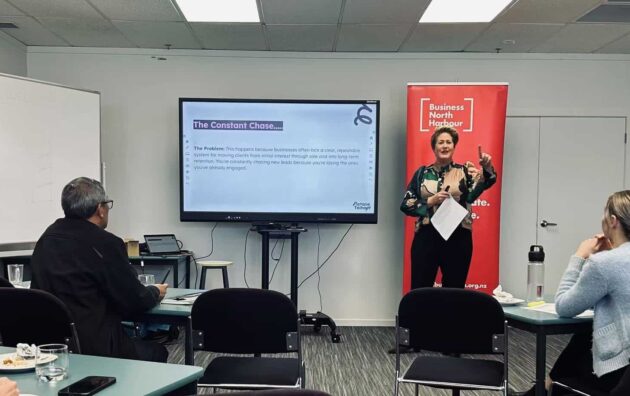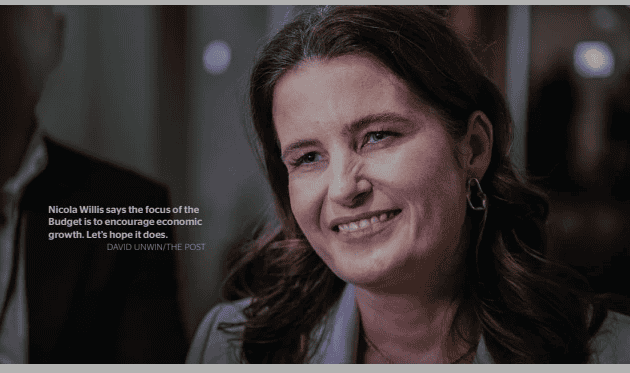7th June
Hon Shane Jones
Associate Finance Minister for the Coalition Government
Barbara Edmonds MP
Finance Spokesperson for the Labour Party
Welcoming 130+ guests, Business North Harbour’s general manager Kevin O’Leary set the scene, acknowledging that many BNH members “are still doing it tough, with some scrambling just to survive in the face of ongoing financial problems”.
He explained that Finance Minister Nicola Willis sent her sincere apologies for being unable to attend – and asked if those present were happy or disappointed by her budget.
He then invited the Honourable Shane Jones to share the key points and his own reflections on Budget 2024.
Honourable Shane Jones
Mr Jones said that he and Winston Peters had always believed this would be “an extraordinarily tough winter” for businesses and Kiwis. Treasury is forecasting that unemployment will peak in early 2025 and that economic activity will pick up towards the end of that year.
He spoke of the need to “rehabilitate” the country’s fiscal position. “You either tighten the belt, or you go and borrow more. The solution for us was clear: the size of the state needs to be tamed.” His key word in this regard was discipline, with $5.86 billion being saved across different initiatives.
All of the savings, he admits, represent some level of trade-off. The trade-offs “are informed by how we prioritise and at what period of time we address the pressing demands”.
This year’s allowance is set at $3.2 billion, the lowest since 2017. Nicola Willis has said that the next budget figure will be less. The trajectory has been set for lower operating costs. “It’s most certainly not going to be easier” – but this government believes it is “not negotiable”.
Tax relief was a motive around the budget, delivering a key election promise. “On average, households will benefit by $60 a fortnight, households with children by $78 a fortnight.
“Not only is the relief fully funded, but it puts $3.7 billion back into Kiwi pockets.” He encouraged people to use the tax calculator to see how they would benefit: https://budget.govt.nz/taxcalculator/
It is also a budget for infrastructure with over $68 billion allocated. Referencing “some tragic weather events”, including last year’s Auckland Anniversary floods, Mr Jones confirmed that $1 billion was earmarked for the rebuild and recovery of impacted communities. “2024 is set to be a record year for infrastructure investment.”
The Fast-Track Approvals Bill is intended to replace the Resource Management Act so that significant projects can be considered expeditiously. “I was not to know that tomorrow Lucy Lawless and a variety of others were going to lead a march in Queen Street attacking this bill and indeed attacking me for dismissing Freddie the frog. Please do not be distressed. I didn’t mean I was going to kill Freddie the frog. I just want to put Freddie into the departure lounge for a while so we can get on with developing our country.”
Additionally, the move towards electrifying New Zealand continues.
He then discussed law and order, saying it had been a “harrowing time” for many Auckland business owners. Frontline policing has been prioritised, with funding of $651 million over four years with a pledge of 500 additional police officers, as well as $430 million to boost police pay.
With regards to health and wellbeing, approximately $20 million has been promised to counselling services for mental health. Free breast screening has been extended, and extra money has been allocated for emergency department security.
Mr Jones stated, “The most notable failure that the New Zealand coalition government identified in terms of funding challenges was pharmacy /medicines”. He affirmed that the government will meet its commitment to fund 13 new cancer drugs.
Immigration settings are being adjusted so that ” we attract the talent we need when we need it”.
In closing, Mr Jones said, “[This] is a budget focused on getting our hands around the throat of our operational expenditure and the ballooning size of the state. It also heralds a new era of disciplined spending, lower taxes for hard-working Kiwis and a strong focus on rebuilding the economy…There’s much more to do. But this budget shows what is possible with diligence.”
Q+A
The Q+A began with a concern that infrastructure projects are not future-proofed. Examples, such as Penlink, with just one lane in each direction, were cited. Mr Jones replied that “infrastructure should be future-proofed” but that “more importantly, we cannot have an unfettered immigration policy that comes in with an endlessly growing size of the New Zealand population”. He believes an immigration policy should be “driven by people we need, not people who need us”.
“If we do not fetter the pace at which we grow our population, we’re always going to be playing catch up.”
There was discussion about New Zealand’s relationships with its Pacific Island neighbours. Mr Jones agreed how important this is.
A representative from Prostate Cancer NZ asked about the “trade-offs” referenced earlier. Mr Jones said to look out for Nicola Willis’s upcoming health-related announcements.
The final question was about the closure of New Zealand’s refinery. Mr Jones was obviously disappointed by what had transpired, saying that reducing climate emissions in New Zealand is “something I have less than a passing interest in”. “I’m about economic dividend. I’m about economic solvency and economic resilience”.
Barbara Edmonds
Barbara Edmonds lives in Porirua and is the MP for Mana, but spent her first 23 years on the North Shore. Her mother died when Barbara was still young – her father became a widower at age 40 – and is buried at Schnapper Rock. Barbara represented North Harbour in several sports, including netball, volleyball, and javelin. “This area will always be home.”
Ms Edmonds says her worldview is “shaped by resilience through adversity”.
“I look at economic policy as fundamentally being about people, and that shapes my approach.” She has held several economic positions, including the chair of the finance and expenditures committee, and advised “many finance ministers and revenue ministers for both colours”.
Ms Edmonds said the budget “was actually much worse than I was expecting, partly because I expected more financial competence.”
She feels that details are essential, especially as a finance spokesperson, so she had taken time to read the budget document. These were her main observations.
As unemployment rises to 5.2 per cent, it is estimated that child poverty will increase from 12.6 per cent to 13.4 per cent this year. “According to the Child Poverty Action Group, growing unemployment could mean an additional 20,000 children in poverty.”
The budget is borrowing an additional $12 billion. If this debt trajectory worsens, it could impact New Zealand’s credit rating, which, in turn, could raise the cost of borrowing for businesses and individuals.
She then focused on the numbers – what had been promised pre-election vs what had perpetuated. “National’s regulatory impact assessment shows that 9,000 people will actually lose money under this year’s budget due to the way that tax changes interact with benefits.” However, she highlighted that Nicola Willis says the number is closer to 5,000.
Regarding infrastructure, Ms Edmonds says business owners are telling her that the government “has applied a handbrake to infrastructure and construction throughout the country at a time when the economy is already slowing down, and the government needs to provide certainty”. There is spending, but this is focused on roads rather than public transport and public housing.
“Cutting spending on new houses at a time when more people will be unemployed, and rents are forecast to continue to rise rapidly can only be described for me as irresponsible.”
Reduced investment in building and maintaining public houses has, she says, a direct effect on New Zealand’s future. “Children brought up in cold and damp homes are not ready to learn. If they’re not ready to learn, then we’re not going to get the productivity we all want for the future generation.”
Health infrastructure is another area of significant concern, with some existing buildings in poor condition. A pipeline of investment is required to support future service delivery. “As you’ve seen here on the North Shore, there is a new surgical unit, but with no operating funding for surgeons, sitting vacant with 150 beds.”
Ms Edmonds reflected that the failure to fund the promised 13 cancer drugs had hit her hard.
She also remarked that there was nothing in the budget for small businesses. And, whilst less red tape is desirable, there will always be a need for checks and balances, particularly when it comes to New Zealand’s climate change adaptation. “Any serious finance minister must have this on their list because, in 2028, New Zealand will have a large international bill for our national distributional contribution from the emissions budget.”
In conclusion, Ms Edmonds said she’s a pragmatist, not ideologically fixated. However, “Budget 2024 demonstrated a lack of economic credibility and a complete lack of vision for addressing some of the big inter-generational challenges we face today.”
The first question of the Q+A concerned increased costs associated with red tape and compliance. Ms Edmonds made no apology for the Labour Party’s stance on improved workers’ rights and wages but said, “the policy book is open” and offered to discuss this in more detail to understand the complexities and costs better.
The next query touched on a few subjects, notably climate change and the amount New Zealand is required to pay. Is it too much for the emissions the country generates? Ms Edmonds referenced the Paris Agreement, to which the National government had signed up. She also pushed back on some of the figures being quoted regarding police numbers.
The final question was about the housing shortage and raised the issue of a local suburb with many vacant residential properties. Ms Edmonds, whose speciality as a tax lawyer was land tax, observed that there is a vacant house tax in France, and maybe this could be a future consideration.
Kevin O’Leary closed proceedings, thanking the Ministers for their time and insights.
Please note: this article is a summary of the Ministers’ comments, not a complete record of every issue covered and/or question raised.
